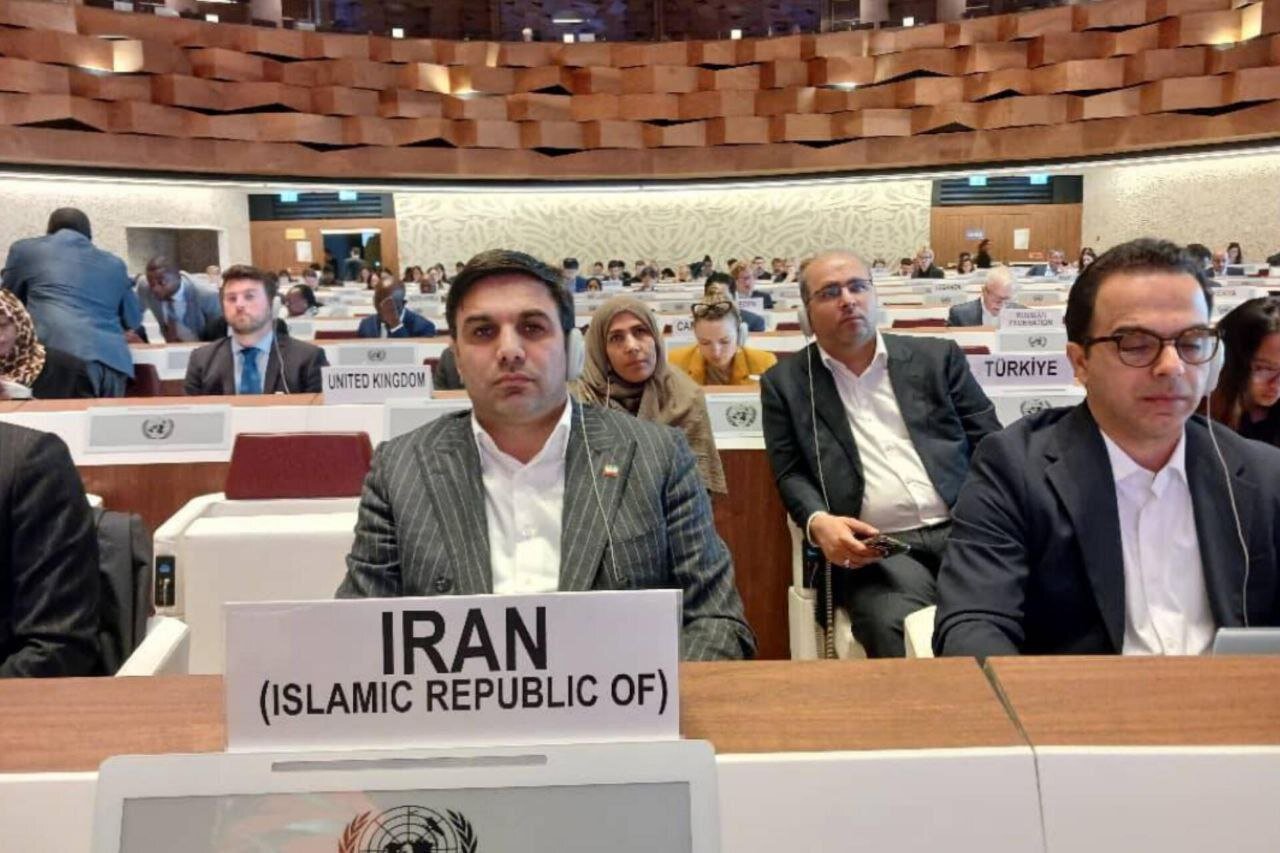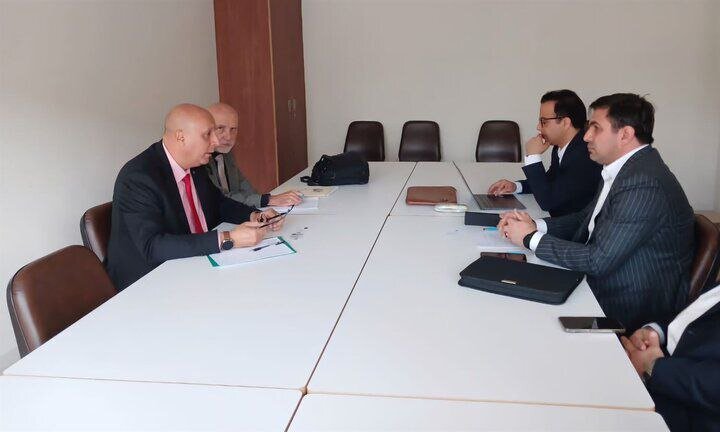‘Coercive measures, digital gap main challenges of information society’

TEHRAN – The head of the Information Technology Organization of Iran, Mohammad-Mohsen Sadr, has called the unilateral coercive measures and the digital divide the main challenges of the information society.
Addressing the 28th session of the United Nations Commission on Science and Technology for Development (CSTD), which was held from April 7 to 11 in Geneva, Switzerland, he said that the session serves as a platform to address challenges facing information and communication technologies, dolat.ir reported.
The main objective of the event is to create a shared vision and collective commitment to building an information society in which all the countries and individuals can benefit from information, he added.
“Iran, as a part of the global information society, has taken great strides in this direction. In line with economic and social advancement programs, Iran has achieved significant progress in expanding the fiber optic network, developing mobile broadband in rural and urban areas, and promoting electronic services in the fields of health, trade, education, agriculture, and science.”
Unfortunately, international mechanisms designed to provide financial and technological assistance have failed to be implemented effectively, widening the technology gap between countries, the official added.
Referring to the goal of Internet governance as per the Tunis Agenda, Sadr noted that the declaration asserts that all governments should have an equal role and responsibility for international Internet governance, but this goal has remained unfulfilled.
Unilateral sanctions have limited access to certain hardware and software for some developing countries, preventing them from taking advantage of the available opportunities. It has also undermined the competitive and enabling environment needed for progress, Sadr stressed.
Referring to paragraph 70 the global digital compact, the official went on to call for the development of practical mechanisms to strengthen international digital cooperation and eliminate unilateral measures.
Also, he asked cross-border companies operating in digital and artificial intelligence to be more responsible, preserve cultural diversity, and multilingualism, and take into account the national sovereignty of countries in the implementation of the compact.
The official expressed optimism that with the cooperation of all nations and international institutions, the challenges will be identified and practical solutions will be proposed to address them.
28th CSTD
The Commission on Science and Technology for Development (CSTD) held its twenty-eight session from April 7 to 11.
The CSTD is a subsidiary body of the Economic and Social Council (ECOSOC) and the United Nations focal point for science, technology, and innovation (STI) for development, in analyzing how STI, including information and communications technologies (ICTs), serve as enablers of the 2030 Agenda.
It acts as a forum for strategic planning, sharing lessons learned and best practices, providing foresight about critical trends in STI in key sectors of the economy, the environment, and society, and drawing attention to emerging and disruptive technologies.
For this, it facilitates concrete collaborations between member states, NGOs and actors in the science, technology and development space. Every year, the commission has two priority themes, for the twenty-eighth session, the themes included ‘diversifying economies in a world of accelerated digitalization’, and ‘technology foresight and technology assessment for sustainable development’.
Cuba seeks to benefit from Iran’s expertise in smart government
Ernesto Rodríguez Hernández, the Cuban first deputy minister of communications, in a meeting with Sadr, expressed Cuba’s interest in utilizing Iran’s experiences in establishing a smart government and cybersecurity, as a top priority, Mehr news agency reported.
The meeting was held on the sidelines of the 28th session of the United Nations CSTD).

Expressing satisfaction with positive former interactions between the two countries, Hernández said, “Cuban officials are determined to develop relations with Iran, and our companies are preparing proposals for further cooperation with Iran.”
The official also referred to the presence of the Iranian companies at last year’s technology exhibition in Cuba and said: “Positive interactions have been established between the two countries in the field of cybersecurity.”
For his part, Sadr underscored the need to develop and deepen cooperation between the two countries. Referring to the interactions that have existed between Iran and Cuba over the recent years, the official said Iran’s strategy focuses on developing these relations. He also announced Iran’s readiness to boost joint activities in sectors such as e-government and smart government, as well as to hold training courses for Cubans.
Sadr also proposed establishing a joint committee to follow up on the issues between the two countries.
The Cuban official also extended an official invitation to Iranian companies to attend the country’s 2026 exhibition and announced Cuba’s readiness to participate in international events in Iran.
Tehran, Havana boost co-op in different ICT sectors
On November 24, 2024, Iran and Cuba signed a memorandum of understanding (MOU) to enhance cooperation in postal services.
A delegation led by Information and Communications Technology Minister Sattar Hashemi visited South America and the Caribbean region to boost joint efforts in the ICT sector.
During a meeting held in Havana, Hashemi and Cuban Deputy Prime Minister, Eduardo Martinez Diaz, explored avenues for boosting ICT ties, ISNA reported.
Referring to Iran’s substantial progress in scientific and technological fields, Martinez called for expanding joint activities in artificial intelligence (AI), and telecommunication fields, as well as postal services.
The officials highlighted that there are many opportunities available for fostering cooperation and conducting collaborative efforts.
Iranian official, for his part, announced the country’s readiness to transfer knowledge and expertise in the field of science and technology to Cuba, “by sharing technology, the two countries will start implementing joint activities,” Hashemi noted.
The signed MOU focuses on improving and facilitating postal exchanges between Tehran and Havana, within the framework of the general regulations of the Universal Postal Union (UPU).
MT/MG
Leave a Comment